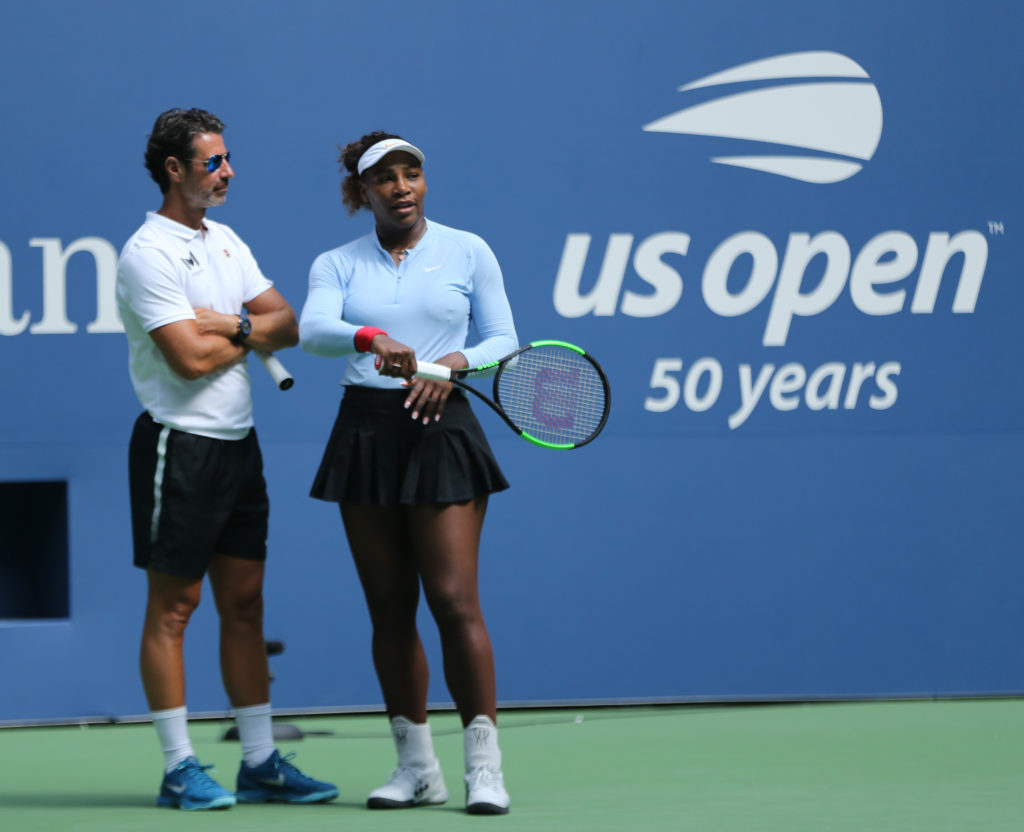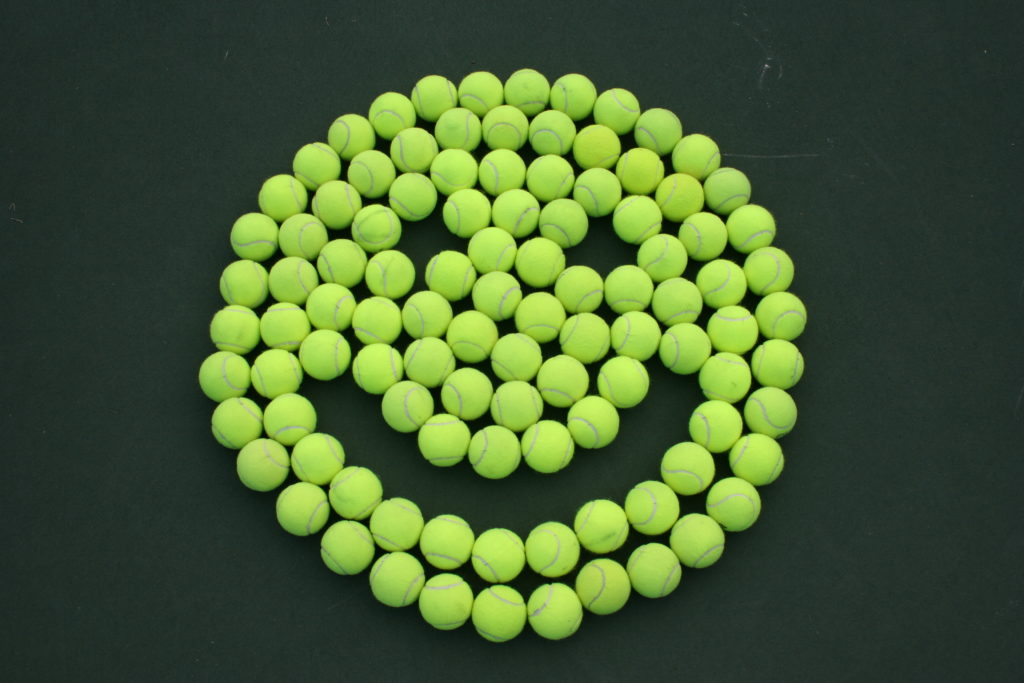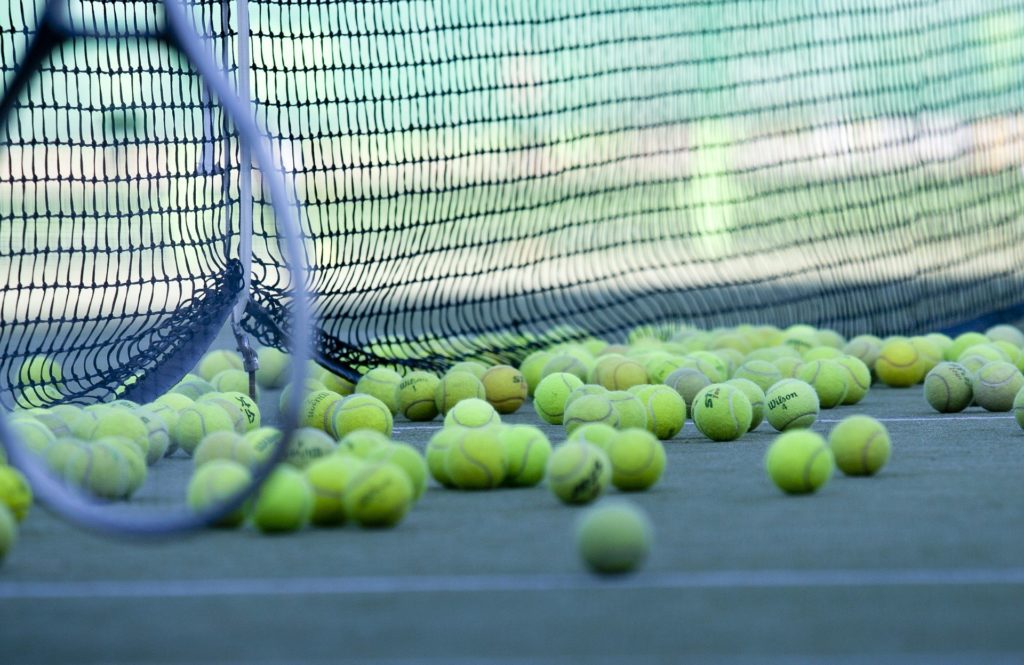Guest blog post by Mike Stern
The art of coaching. Radio is like any skill – the more you do it, the more adept at it you get.
But with the help of a great coach who can guide you, regular players can move into the upper echelons.
In today’s guest blog post, Mike Stern provides a compelling analogy that puts great coaching into perspective. Great coaches aren’t just skilled – the best of the best are visionary about the game they teach – tennis or radio.
Today, it’s Mike’s serve. – FJ
Maybe it’s because I’m a fan, but it’s always seemed that comparisons between sports and radio are nearly inescapable. The highly competitive nature of both inevitably leads to many – possibly too many – analogies. While not every comparison between sports and radio holds up, there is one truth from the sports world that I believe holds true in the radio world more than most:
All players, even the great ones, need great coaches.
When discussing this idea, I tend to lean toward examples from basketball because I’m a fan. Michael Jordan had Phil Jackson and Magic Johnson had Pat Riley. All the Michigan State Spartan teams I’ve lived (and died) with over the years have had Tom Izzo, who specializes in players at a different level in their careers. It just goes to reinforce something I believe: that performers at all levels, be they athletes, radio hosts or salespeople, can all benefit from coaching.
That’s why a recent article from GQ about a special coach – “Serena Williams’s Coach Wants You To Be Confident” by Colin Groundwater – caught my attention. Patrick Mouratoglou coaches the great Serena Williams, perhaps the G.O.A.T. of women’s tennis (or just tennis?). Yet, just like Michael, Magic, Tiger, and others she has a coach.
As I read Groundwater’s article, I couldn’t help but be inspired by several great insights about coaching, as well as fascinating parallels between tennis and radio. It turns out Mouratoglou is motivated to do and try new things around the sport he loves.
Here is a six-pack of takeaways about coaching that very much apply to winning in the game of radio:
1. He’s not a former star: Mouratoglou played tennis as an amateur until age 16 when his parents insisted he give up the game to study. He never lost his passion for tennis. And at age 26, he passed on a career in his family’s business to open a tennis academy.
for tennis. And at age 26, he passed on a career in his family’s business to open a tennis academy.
(Check out the Mouratoglou Tennis Academy here. It’s awesome).
This is a great reminder that the best players aren’t always the best coaches and vice versa. Coaching is a skill set of its own, and sometimes, someone who is a bit removed from the game can bring more perspective and balance.
2. He coaches everyone differently: Mouratoglou works with players at many different levels. Beyond Serena, he guides several budding stars, including Coco Gauff. “Everybody has completely different needs,” says Mouratoglou. “Everyone needs a different relationship with the coach because you don’t speak to everyone the same way.”
That’s even more true of an airstaff where there is often an experience gap among talent. Each performer requires their own personalized approach.
3.He believes enthusiasm is essential: Short, sweet and worth repeating verbatim, Mouratoglou is convinced: “I always say that quality number one of the coach is enthusiasm. He has to believe in his player 100%.”
enthusiasm. He has to believe in his player 100%.”
That level of energy plays a huge role in the player (or host) believing the coach’s advice will help them achieve new levels of success. When the coach enthusiastically believes in a talent’s potential and skill, it gets contagious.
4. He says what needs saying: When it comes to coaching a superstar like Williams, Mouratoglou isn’t cowed by her star stature. He treats her like he would anyone: “I tell her what I have to tell her.”
He does consider who she is as a player. Serena Williams’s experience level and track record impact his approach to coaching. That’s an important lesson for dealing with “star” air talent. It’s important to have a relationship where you can be frank. But that doesn’t mean you can talk to a longtime successful host the same way as a rookie hosting their first show. Again, coaching and communication need to take into account personality and experience level.
5. He is a prep monster: When Mouratoglou first started coaching Serena Williams, he told her flat out the reason she was losing matches was a lack of preparation. No one wins every match, but losing because you weren’t prepared is inexcusable, and can lead to eroding confidence.
preparation. No one wins every match, but losing because you weren’t prepared is inexcusable, and can lead to eroding confidence.
He insists that for every match she is sure of three things, “First of all, I’m 100% prepared. Second of all, I have a plan A before I come on the court to beat this player, and I have a plan B. Third, I give 120% during the match to win.” Just imagine if every radio host who entered the studio met all three of those criteria.
6. He’s reinventing the game: Mouratoglou is indisputably a great coach, but when the sport itself is being threatened, he rethinks his mission. He’s concerned tennis is going over its own “demographic cliff.”
That’s because the average age of a tennis fan today is 61 years-old. More importantly, just a decade ago, it was 51. The audience is aging, and the sport is not attracting younger fans. Sounds a lot like a certain industry we all love.
So, Mouratoglou has rethought the traditional rules of tennis, creating something new, different, and faster. His antidote is the Ultimate Tennis Showdown (UTS) which he holds at his academy. Instead of the traditional games and sets, each match features four 10-minute quarters. Players get special cards they can use against their opponents (ex: taking away a first serve or making it so a player must win the next point in no more than three shots) that creates dynamic challenges.
traditional games and sets, each match features four 10-minute quarters. Players get special cards they can use against their opponents (ex: taking away a first serve or making it so a player must win the next point in no more than three shots) that creates dynamic challenges.
Listening to him talk about his inspiration for the UTS, you can’t help but flash on the broadcast radio industry:
“If we don’t create something that the younger generation would consume, tennis is dead. It’s just a question of time. That’s why I had this idea to create something that looks like tennis – the players are the same, we still play within the same lines – but everything else is different.”
The biggest speed bump Mouratoglou is facing is the “old school” conservatism of tennis’ leaders.
 So far, the reaction from tennis fans has been mixed but that doesn’t bother Mouratoglou at all, “I’m very happy if some traditional tennis fans like UTS, but they are not my targets. I’m targeting under 40.”
So far, the reaction from tennis fans has been mixed but that doesn’t bother Mouratoglou at all, “I’m very happy if some traditional tennis fans like UTS, but they are not my targets. I’m targeting under 40.”
This guy would make a great speaker at this year’s NAB/RAB Show!
So, how should the establishment broadcast radio community process this kind of advice? Creating a version of radio completely different designed to attract younger fans to keep the industry vital and healthy? What a concept!
Anyone for tennis?
Our (mostly) annual survey about on-air talent – AQ3 – is in the field, and we need personalities and hosts in commercial radio in the U.S. to give us their opinions as soon as possible. OR please forward this link to anyone you know who’s on the airwaves (or was as of 2019). The top-line will be presented by Fred at Don Anthony’s Morning Show Boot Camp in Chicago next month. Here’s the link to the survey: https://survey.alchemer.com/s3/6416243/
- Does Your Radio Station Need A Princess? - December 17, 2024
- With A Name Like Smucker’s… - December 10, 2024
- Kondo And Romo:The Pros And Cons Of Regression - February 10, 2023




Mike, great article and your points are…right on point.
Thanks Jay. Appreciate you taking the time to read it.
I do both. LOL
Well… don’t forget about radio all together.
Wow! I am literally working on a project with the same concept in mind. An all digital (on-line) urban gospel radio station targeting the 18-34 female demo. As a man of faith, this is what we would call #confirmation. Good stuff Mike, Thank you. Listen here https://rdo.to/IKJZ
Good luck with the project.
Hey Mike, Welcome back to Jacobs Media! Spot on observations. Music radio has fallen into the sand trap of sameness, IMO. As a morning show host, planned spontaneity is something I practiced. As a morning show coach, it was, indeed, an individual thing with each host or team. Proud when one moved on to a bigger market, where they still are over a decade after.
We all love to see our kids grow up and do well. I’m the same way when I work with a host and they go on to great ratings and bigger success.
Thanks for the thoughts.
As a morning show host, these days at a small station with a large digital footprint, I appreciate this. Thanks, Mike.
Thanks Dred. Glad to hear you’re doing well.